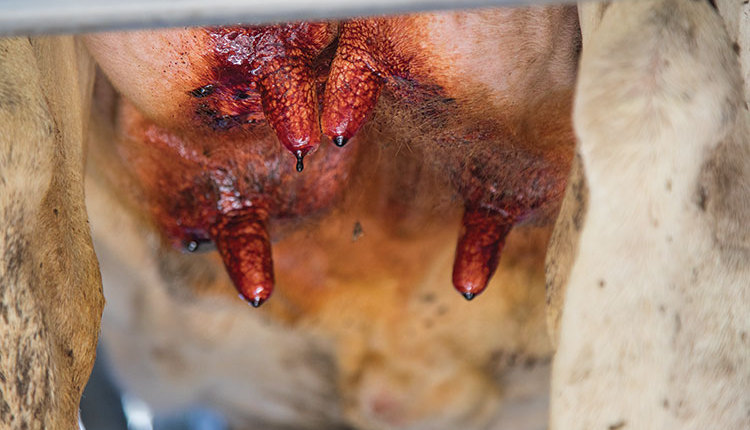
The author is a veterinarian with master’s degrees in business management and clinical counseling. He works with farm families on management, asset transfer, communication, and conflict resolution.
We all know that dairy farming is a challenging business under the best of circumstances. Hoyt Hill Farmstead has experienced additional stress over the past two years as Scott and Amber Hoyt have dealt with the consequences of work done on their organic Vermont dairy farm on behalf of a telecommunications company. Stainless steel wire was used to attach a fiber optic cable to existing lines, and pieces of this wire fell into growing hayfields and pastures.
Because stainless steel is not magnetic, harvesting equipment did not register its presence, and significant amounts were chopped into the forages. The forages were not fed immediately, so no one on the farm noticed the contaminants.
However, when this feed was introduced into the ration, the short pieces of wire became evident. A cow died, and a necropsy by the farm’s veterinarian revealed the cause to be hardware disease. Over several months, two more cows succumbed, and others had to be sold.
The contaminated feed had to be discarded and other forage purchased. The pastures and cropland are still contaminated and will be for some time. Besides devastating financial losses, the Hoyts have suffered the heartache of seeing good cows die or be culled for salvage.
After contacting the telecommunications company, Hoyt Hill Farm was told that the work was done by a subcontractor for another subcontractor. The subcontractor who did the work is now bankrupt and out of business. Some compensation has been received, but it represents only a small fraction of the losses. A lawsuit is now pending, though it promises to be a long, drawn-out affair. Local news coverage favorable to the farm has gotten no results.
Protect yourself
Could a similar thing happen on your farm? How well do you know the companies that do work on your property, and what recourse will you have if their work is substandard, or if they harm your crops or animals?
I spoke with an attorney familiar with dairy farms and received the following suggestions. They could apply to many situations where construction is occurring on your farm.
1. Have a written contract that includes wording that you will be compensated for any harm done to your property, animals, or equipment.
2. Make sure the contract also covers the company’s contractors, subcontractors, agents, and employees.
3. Ask for and review proof of insurance coverage that includes all contractors, subcontractors, agents, and employees.
4. Have your attorney review the contract before you sign it.
I also recommend getting references from other farms or companies where this business has done work.
While all of these ideas make sense, the Hoyts were dealing with a public utility that did not need permission to come into the fields. There were no contracts. Perhaps the best advice if a public utility is involved is to contact an attorney as soon as possible to learn your rights. Be sure to watch what they are doing, and do your best to protect yourself anytime others will be working on your farm.










